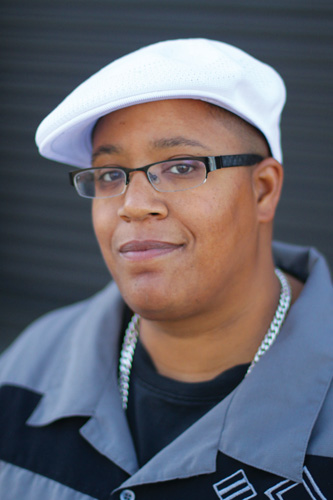Malkia Cyril, founder and Executive Director of the Center for Media Justice, does not shy away from difficult conversations. We recently spoke about communication, social justice and the representation of such historically oppressed groups as African-Americans and the LGBT community.
Are there one or two victories that stand out for you as achievements that you’re very proud of?
One thing is the establishment and growth of the Media Action Grassroots Network, which started in 2005 with four organizations and now has 140 member organizations around the country with chapters in 11 cities. Through that network, I’m proud of the work that our members have done to lead a field strategy that basically, along with our Washington, D.C., partners, led to the first rules to govern the Internet in 2009. In 2011, we blocked the merger of T-Mobile and AT&T, which would have raised cell phone prices and reduced access for the most vulnerable consumers.
There are many organizations, such as GLAAD, that are trying to ensure fair representations of different communities. Have you ever partnered with any of these other groups?
We support wholeheartedly any organization that is watchdogging or advocating for fair and just representation of all communities, and that includes the queer, gay and lesbian community.
A lot of people who take on social justice as their life’s work have some kind of spark from their personal life. What was that moment for you?
[One] factor was growing up in the 1980s and knowing that the representation of people of color—the conversations about “welfare queens,” “crack babies,” and the public conversation about AIDS. The fact that all of these social issues were framed in a way to essentially take away my rights and ensure that public policy about me and people like me was going to actually injure me and people like me, as opposed to encouraging our democratic inclusion. That experience informed me that a cultural shift is needed in this country.
Are there any big initiatives you have coming up this fall?
The Campaign for Internet Freedom—to mobilize Black and Latino voices for Internet freedom. We’re trying to elevate a new generation of leaders to vocalize and mobilize in order to promote wireless freedom. We want to pass legislation to prevent “bill shock,” which is the insanity of opening your bill and not knowing what the numerous fees and charges are even about. We want access for all that’s affordable.
In particular, what’s happening in Texas?
The Esperanza Peace & Justice Center and the Media Justice League are organizations that have helped to build out our chapter in San Antonio. They’ve sponsored events that have educated artists around the fight for equal access to the Internet. The Martinez Street Women’s Center is connecting reproductive justice and media justice in San Antonio and looking at the communication rights of women and those oppressed by the narrow definitions of “family” in this country. Our work across the nation could not be done without the work of these local groups.
Would you consider yourself optimistic about the future?
I am extremely hopeful because I fundamentally believe what Martin Luther King said years ago, “the arc is bent toward justice.” I also believe that there are people in this world whose responsibility it is to bend that arc. It doesn’t bend on its own.
Photo courtesy of Malkia Cyril




































